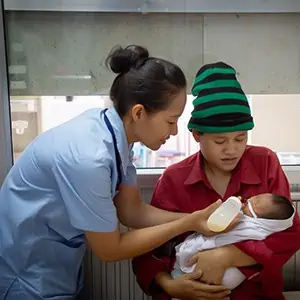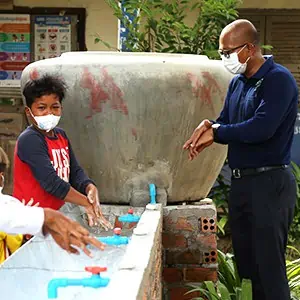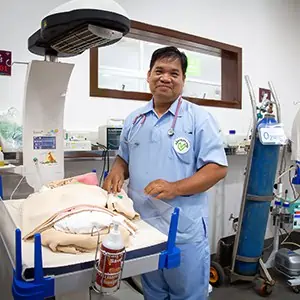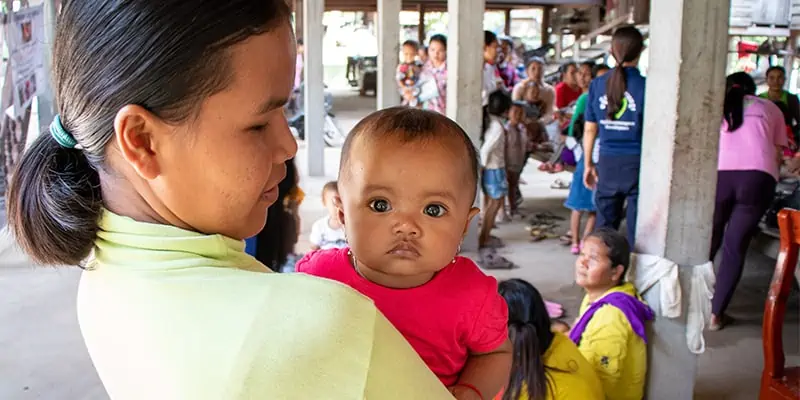In the village of Anlong Thom, two dozen mothers have gathered underneath the shade of a neighbouring house. They sit patiently, with restless children in their arms, waiting to hear from their local village health support (VHSG) worker. VHSGs are government appointed volunteers who organise education sessions every month to share basic health knowledge within their villages.
Anlong Thom lies in the forest of Kulen Mountain National Park, some of the last remaining protected forest in Siem Reap province. The villages of Kulen Mountain are some of the poorest and most isolated communities in Cambodia. The nine villages, totalling over 4,500 people, are serviced by only one health centre, the Knong Phnom Health Centre.
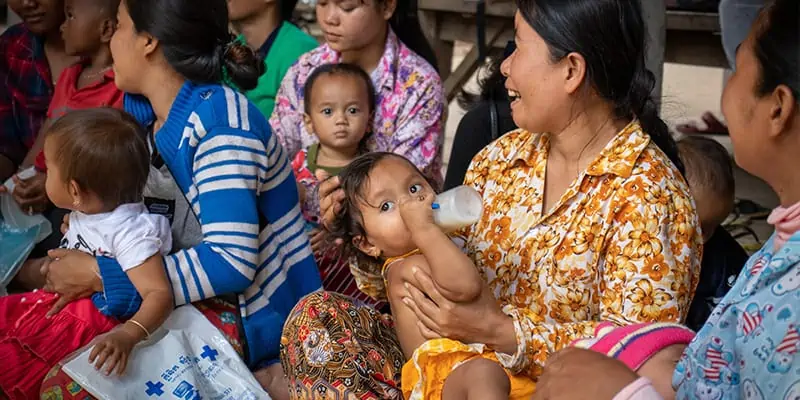
Seventy-five percent of Cambodians are living in rural areas, one of the highest urban to rural population distribution in the world. To help provide healthcare to the rural population, each village has one or two VHSG (Village Health Support Group) workers. They form an extensive, frontline health information network across the country, an important connection between community members and the health system.
Pov Makara has been the VHSG for Anlong Thom village since 2017. “Life on the mountain can be difficult, the water is not clean”, says Makara, “Only a small number of villagers use filtered water or boiling water”. Like the other 105 VHSG’s across Siem Reap province, Makara has received formal training from AHC’s community outreach team. Over the course of her training, Makara has gained the skills to screen children for malnutrition, teach correct breastfeeding skills, share basic hygiene and water safety knowledge, and perform basic first aid among other vital skills.
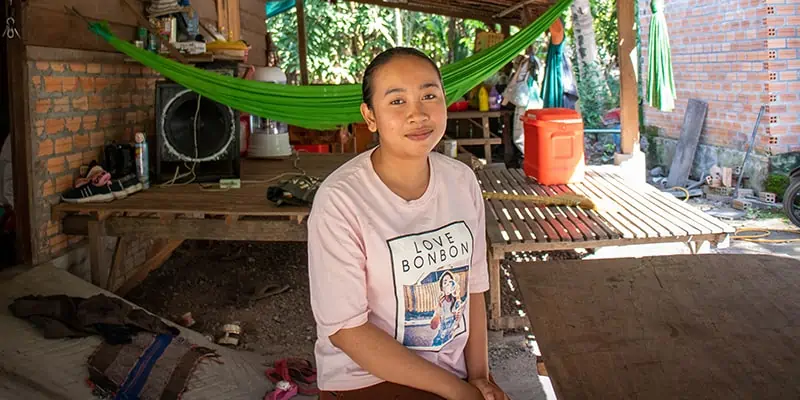
Makara was originally motivated to volunteer for her village after her own daughter was struck with a serious case of dengue fever. “I didn’t know that it was dengue because I had never attended any health sessions before”, says Makara, who did not seek care from her health centre for three days. “The health centre told me to come straight to AHC, but I didn’t believe them. I didn’t go until the fourth day”. After Makara finally came to AHC, her daughter was admitted to the ICU in a critical condition, but was fortunately able to fully recover. “The hospital staff told me if I left my child for one more day it would have been too late”, recalls Makara, “So when I heard about the VHSG opportunity, I joined immediately in order to help other villagers not make the same mistake as I did with my daughter”.
Today, as the two dozen mothers of her village sit listening, she teaches them basic nutrition education. “I am teaching them how to make a nutritious porridge with the ingredients found in their gardens”, says Makara. Malnutrition continues to be a major problem in rural Cambodia, with irreversible stunting being more common in rural areas (34%) than urban areas (24%) (WVI, 2018). By teaching her village about healthy eating, safe cooking, basic hygiene, and breastfeeding, Makara can help prevent malnutrition, building stronger immune systems, and reducing the risk of infection and diseases such as diarrhoea, pneumonia and measles.
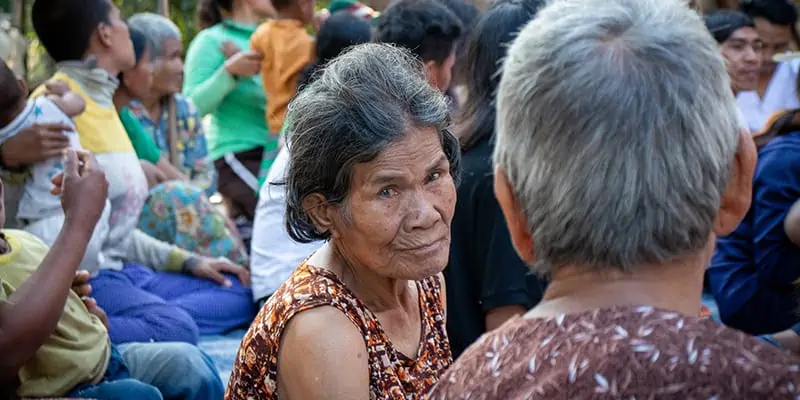
AHC has been operating in Kulen Mountain for the past two years, delivering a range of school, village and community interventions designed to improve child health. By working closely with local health authorities, and VHSG’s like Makara, AHC hopes to continue building awareness of nutrition and other important child health topics, helping to ensure children not only survive, but thrive.
